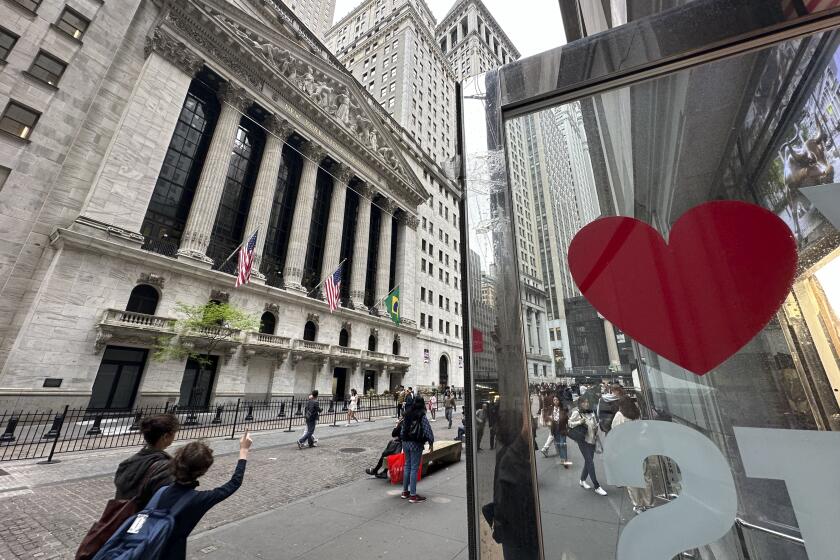SEC Begins Formal Probe of Analysts
The Securities and Exchange Commission jumped into the swelling stock-analyst controversy Thursday, saying it has launched a formal investigation of whether Wall Street researchers intentionally misled investors during the 1990s bull market.
Some critics said the SEC looks as if it’s coming late to the game and was pushed to take a bigger role in the wake of startling allegations about analysts’ conduct made public this month by New York Atty. Gen. Eliot Spitzer.
The SEC said it has probed analyst practices informally over the last year but conceded that it is pursuing an official investigation in part based on recent revelations about analysts’ behavior.
A formal inquiry lets SEC lawyers issue subpoenas to those under investigation instead of simply requesting information from them.
The SEC announcement underscores the degree to which analyst conduct has become a hot issue on Wall Street and in Washington.
Regulators and politicians have focused on analysts’ alleged conflicts of interest since the demise of the bull market two years ago. But the issue assumed a dramatically higher profile 2 1/2 weeks ago when Spitzer released evidence that was highly critical of analysts at Merrill Lynch & Co.
In a court filing, Spitzer unveiled a series of e-mails in which Merrill’s Internet analysts questioned the validity of their stock picks in 2000 and 2001.
Despite publicly lauding the shares, the analysts privately disparaged them as “junk” and “crap” and indicated that their bullishness was primarily aimed at luring lucrative investment banking work for the firm. Merrill has denied wrongdoing.
Spitzer met with SEC Chairman Harvey Pitt on Wednesday in Washington.
The analyst controversy has potentially far-ranging implications for Merrill and other brokerages. Besides the damage to their public image, the firms could face a legal nightmare if charged with civil or criminal securities fraud.
Merrill’s stock fell $2.15 to $42.50 on the New York Stock Exchange on Thursday and is down 21% since Spitzer’s broadside April 8.
Merrill has sought a settlement with Spitzer, but the two sides are said to be far apart in negotiations.
The SEC rarely confirms its investigations publicly, but it may have felt compelled to do so because Spitzer had stolen the political thunder, observers said.
Some critics have blasted the SEC for what they perceive as a slow and reluctant crackdown on Wall Street wrongdoing, and said the agency may be embarrassed that a lesser-known regulator seems to be leading the charge against brokerages.
“It’s a little late in the day. This [analyst] stuff is 2 years old,” said Saul Cohen, an attorney at Proskauer Rose in New York.
SEC spokeswoman Christi Harlan said Pitt has moved aggressively on the issue, and she downplayed speculation that the SEC was miffed at the publicity accorded to Spitzer. “This is something the SEC was already looking at and working on. There’s no competition for who gets to the courthouse first,” Harlan said.
The SEC already had been working with the National Assn. of Securities Dealers and the New York Stock Exchange on a series of reforms proposed to limit analysts’ conflicts of interest.
The SEC has set a May 8 vote on that package.
The agency’s formal investigation gives political cover to both it and Spitzer, said John Coffee, a Columbia University law professor.
“Spitzer needed [other regulators] to join him because otherwise the industry could say, ‘This is someone you never heard of and he is just a strange lone wolf,’” Coffee said.
And though the SEC may feel it is being dragged into the matter, “They have to show they are cooperating and working with Mr. Spitzer,” Coffee said.
About a dozen state securities regulators, including California’s, announced this week that they have formed a task force to investigate analysts with Spitzer, who is known to have subpoenaed other major brokerages in recent weeks.
The Justice Department also is looking at the issue for possible violations of criminal fraud statutes.






